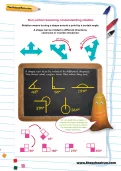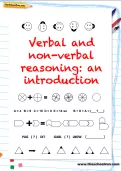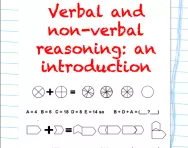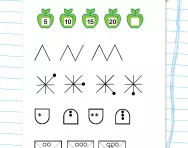Important update from TheSchoolRun
For the past 13 years, TheSchoolRun has been run by a small team of mums working from home, dedicated to providing quality educational resources to primary school parents. Unfortunately, rising supplier costs and falling revenue have made it impossible for us to continue operating, and we’ve had to make the difficult decision to close. The good news: We’ve arranged for another educational provider to take over many of our resources. These will be hosted on a new portal, where the content will be updated and expanded to support your child’s learning.
What this means for subscribers:
- Your subscription is still active, and for now, you can keep using the website as normal — just log in with your usual details to access all our articles and resources*.
- In a few months, all resources will move to the new portal. You’ll continue to have access there until your subscription ends. We’ll send you full details nearer the time.
- As a thank you for your support, we’ll also be sending you 16 primary school eBooks (worth £108.84) to download and keep.
A few changes to be aware of:
- The Learning Journey weekly email has ended, but your child’s plan will still be updated on your dashboard each Monday. Just log in to see the recommended worksheets.
- The 11+ weekly emails have now ended. We sent you all the remaining emails in the series at the end of March — please check your inbox (and spam folder) if you haven’t seen them. You can also follow the full programme here: 11+ Learning Journey.
If you have any questions, please contact us at [email protected]. Thank you for being part of our journey it’s been a privilege to support your family’s learning.
*If you need to reset your password, it will still work as usual. Please check your spam folder if the reset email doesn’t appear in your inbox.
Private tutors – your questions answered

How do I pick a tutor?
First and foremost a tutor should have a DBS certificate verifying that they have been checked and passed to work with children. So ask about the tutor's CRB checks, and make your own.
Always follow up references if you are employing someone directly. Parents can ask tutors to show them a copy of their DBS certificate, which they receive to prove they have been checked and cleared to work with children.


Prepare For The 11+ Exam
- Essential English and maths skills
- Verbal and non-verbal reasoning questions
- Reading comprehension & CLOZE tests
They can also check with the General Teaching Council as all qualified teachers are required by law to register with the Council.
What else should I look for in a tutor?
You generally want a tutor who is committed, works well with your child, and has a good grasp of their subject.
The best way to find one who fits this profile is to ask for and follow up on references. If these check out you should then interview the tutor together with your child. Your child could come up with one or two questions to ask during the interview, so you can watch how well they get on. Don’t forget to ask for your child’s verdict afterwards!
Is a tutor that comes to the house best?
You can choose to employ a home tutor, or one that works online or out of a centre. Each type of tutor service has its own pros and cons, so your choice will depend on what suits you and your child. It may also depend on what the tutor teaches, too. For example, if there is special equipment that a tutor needs, such as a piano or science resources, then it may be better for the child to go to the tutor.
Home tutors
Home visits may be more convenient in terms of keeping an eye on what takes place, not having to leave the home if you have other children and getting more involved in what your child is learning, creating a team effort involving the child, tutor and parents.
Tutoring centres
A centre has the advantage of giving your child the opportunity to learn alongside others but in a much smaller group than at school. This means that your child still gets the opportunity to practise learning independently without feeling conscious while the tutor goes off and attends to someone else.
Online tutoring
This method has been gaining popularity in recent years. Online tutors tend to offer lessons using a web-based platform and can work out to be flexible and affordable. The online advantage is that your child can often work at their own pace, saving work to return to later, and can work from the comfort of home.
How long should a tutor session last?
A period of 40 minutes may be the best option for younger children and up to an hour and a half for teens.
What does tutoring cost?
As there is no general scale of fees, tutors will set their own rates. Ask about how they set their rate and do some comparisons with other tutors. Some tutors may include materials such as worksheets or music scores in their fees. They may also encompass a cost to travel to your home. So bear these factors in mind.








